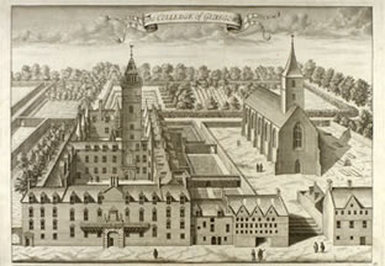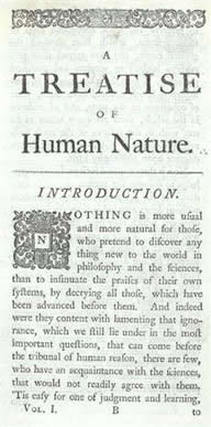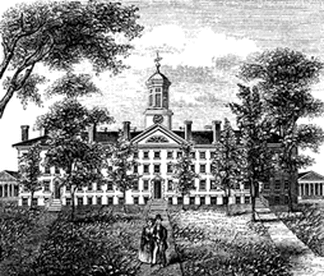The 18th Century Age of Enlightenment
The Beginnings of the 18th Century Age of Enlightenment

Gershom Carmichael was appointed to teach philosophy at Glasgow late in the 17th century. The texts he wrote for students showed the influence of Grotius and Pufendorf. Changes were also afoot in the organization of education, most notably the creation of Professors in place of Regents. Where the latter were generalists who took a generation of students through the whole curriculum, the new Professors were expected to specialize in one main subject (though never confined to this alone). Carmichael has the distinction of being appointed Scotland’s first Professor of Moral Philosophy in 1726. He occupied the Chair for less than a year, however, dying of cancer not long after his appointment. His successor in the Chair was also his most distinguished student – Francis Hutcheson, an Ulster Scot. Commonly hailed as the ‘Father’ of the Scottish Enlightenment, it was Hutcheson who first started lecturing in English rather than Latin. With this new style of teaching, and the more ‘humane’ philosophy that went with it, Hutcheson ushered in the most famous period of philosophy in Scotland, the 18th Century age of enlightenment.
The 18th Century Age of Enlightenment in Scotland
The 18th Century Age of Enlightenment in Scotland is universally acknowledged as a cultural phenomenon of international significance, and philosophy equally widely regarded as central to it. In point of fact, the expression ‘Scottish Philosophy' only came into existence in 1875 with a book of that title by James McCosh, and the term ‘Scottish Enlightenment' made an even later appearance (in 1904). Nevertheless, the two terms serve to identify an astonishing ferment of intellectual activity in 18th century Scotland, and a brilliant array of philosophers and thinkers. Chief among these, after Hutcheson, were George Turnbull, Adam Smith, Adam Ferguson, Hugh Blair, William Robertson and of course, David Hume. Hume apart, all these figures were university teachers who also actively contributed to the intellectual inquiries of their time. Most of them were also clergymen. This second fact made the Scottish Age of Enlightenment singularly different from its cultural counterparts in France and Germany, where ‘enlightenment' was almost synonymous with the rejection of religion. By contrast, Hutcheson, Reid, Campbell, Robertson and Blair were highly respected figures in both the academy and the church, combining a commitment to the Christian religion with serious engagement in the newest intellectual inquiries. These inquiries, to which Hume was also major contributor, were all shaped by a single aspiration – a science of human nature. It was the aim of all these thinkers to make advances in the human sciences equivalent to those that had been made in the natural sciences, and to do so by deploying the very same methods, namely the scientific methodology of Francis Bacon and Sir Isaac Newton.

David Hume's Treatise of Human Nature was the first, longest, and most explicit endeavour of this kind. Though scarcely noticed at the time of its publication, it subsequently became, and has remained, the most studied philosophical text in the English language. Ironically, however, Hume's investigations were self-refuting. The analysis and argument he developed resulted in a deep scepticism about the very possibility of scientific knowledge, and seemed to support a kind of solipsism in which the mind is shut out from even an awareness of the external world. This sceptical thrust, however, provided a powerful stimulus to Hume's contemporaries, who now set about the task of showing how the science of human nature could avoid debilitating scepticism.
The School of Common Sense
In 1752 Thomas Reid, who had recently moved from King's College Aberdeen to the University of Glasgow, published his Inquiry into the Human Mind upon the Principles of Common Sense. This was widely regarded as the single most effective answer to Hume. The result was that mainstream Scottish philosophy became identified with a ‘School of Common Sense' that attracted, and was enthusiastically expounded by a subsequent generation of philosophers. In the hands of some of these – James Oswald and James Beattie, for instance -- 'common sense' became a way of defending 'the plain man' against philosophy, and thus vulgarised Reid in a way that deflected attention from his philosophical brilliance. Others – most notably Dugald Stewart (1753-1828) – saw that Reid's appeal to 'common sense' always carried the danger of such vulgarization, and strove to articulate the fundamentals of 'the School' in a more satisfactory manner. Stewart – described at his death as 'the pride and ornament of Scotland' – brought immense erudition to the task, but was not able to stem the increasing doubts that philosophers like his successor Thomas Brown (1778-1820) were giving voice to.
In America, the appointment of John Witherspoon (1723-94), a Presbyterian clergyman educated in 'the Scottish philosophy', as president of the College of New Jersey (subsequently Princeton University) gave 'Common Sense Philosophy' a leading role in the post-revolutionary formation of higher education, displacing the subtle, theologically based, epistemology of Jonathan Edwards. The American version of 'common sense' eventually spawned America's only 'native' philosophy, namely Pragmatism.

The Emergence of Social Science
Hume's Treatise of Human Nature, and Reid's reply, had focussed attention on the mind of the individual as the main topic of investigation. But alongside this, other philosophers were studying human nature in a broader social context. The most famous of these was Reid's predecessor as Professor of Moral Philosophy at Glasgow, and close friend of David Hume – Adam Smith (1723-90). Smith's first major work was in moral philosophy, but his magnum opus was The Wealth of Nations, now widely regarded as the founding text of modern economics. Less well known now, but highly celebrated in his own time, was Adam Ferguson (1723-1816), Professor of Moral Philosophy at Edinburgh and author of An Essay on the History of Civil Society, often held to be an important study in the founding of sociology. Hume's History of Natural Religion was an equally important work in the emergence of empirical social science.